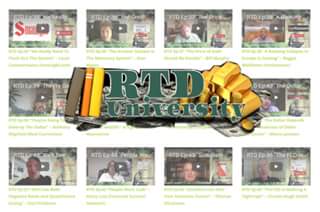Usually, actions can be easily categorized as voluntary or coerced. You choose where you work. You are coerced into paying taxes. However, long-standing concepts such as “wage slavery” challenge this simple classification.
While socialists use this term to justify greater force and coercion (akin to southern US slaveholders), there is nonetheless a kernel of truth here. The truth is this: the rules are rigged.
Social media encourages catchy slogans over detailed exposition, and arguments like “taxes are voluntary” and “wages are slavery” are quickly rewarded with internet points. Both comments are mirror images of the same proposition: that wages and taxes are either both voluntary or both coerced. You can choose, the argument goes, to avoid paying taxes by not working and not buying consumer goods. Pointing out that one must work to live appears to prove that you do not work voluntarily but only under duress: to avoid starvation.
Shallow arguments like these can be quickly brushed aside by simply referring to the definition of the terms:
Voluntary: done or undertaken of one’s own free will.
Coerce: to pressure, intimidate, or force (someone) into doing something.
The corner drug store offers a reward for work: money. The government threatens imprisonment to collect taxes. While this is enough to address newly minted socialist undergrads on Twitter, it fails to address underlying issues raised by more thoughtful scholars.
A Free Economy vs. an Interventionist Economy
In a free market, employment is clearly not slavery, but states everywhere reduce and limit the freedoms of employers, employees, and consumers. While this may not reduce wage earners to a state of slavery, market arrangements in an interventionist market such as this are not quite voluntary either.
The Marxist tradition has expended a lot of effort to classify societies into various modes of production, e.g., slavery, feudalism, and capitalism. These modes, while currently out of favor, generally sought to highlight key features and relationships that differentiated one mode from another. As socialist David Graeber put it:
in the case of [the] slave mode of production, the exploiters directly own the primary producers; in feudalism, both have complex relations to the land, but the lords use direct jural-political means to extract a surplus; in capitalism, the exploiters own the means of production and the primary producers are thus reduced to selling their labor power.
The presence—or lack thereof—of “outside options” (the ability to earn a living outside of formal wage labor) is critical for socialists when describing coercion within capitalism.
How Government Intervention Changes the Rules of the Game
Imagine a small merchant who runs a corner drug store. Now imagine that a massive corporation seeking to limit competition uses the state to make self-employment prohibitively expensive; more people will be forced to turn to wage labor. This serves to increase the size of the labor pool, reduce wages, and reduce competition from small firms.
Another example is the AB 5 legislation in California, which temporarily disrupted the gig economy before voters overturned it with Proposition 22. Ignoring the stated motivations, the actual impact was to drastically restrict the ability of people to work for themselves as independent contractors.
Consider other ways the governments can restrict the choices of wage earners:
- Central banks: an inflationist Federal Reserve, for example, that steadily drains the purchasing power of small savers by printing new money used to buy corporate assets.
- Covid restrictions that close the corner store while allowing big-box retailers to remain open.
- Regulations that favor employee-based health insurance, and thus insurance is cheaper as an employee than as an independent worker.
- Regulatory capture is well understood in free market circles. It’s only a small stretch to see how in some cases this could coerce more workers into going into wage labor than would naturally exist.
This is not simply theoretical. A fascinating study out of UCLA measured the effect in the British West Indies of plantation owners using the state and legal coercion to restrict the outside options of former slaves and thus secure a steady supply of cheap labor. Return to plantation owners was highest where they could successfully lobby to restrict homesteading (or “squatting”) of abandoned land. They also used the tax code to benefit themselves at the expense of small plot holders. The same spirit of coercion, if not the exact same tactics, were used in the American South after emancipation to keep former slaves on plantations.
Underneath the vapid squawking of woke Twitter parrots, there exists a real issue: the incentive structure is being manipulated to hide coercion beneath the guise of free will. The rules are rigged. Let us not be tricked into defending a current system we do not support.
Article by Kyle Ward
Read more articles like this here:
-
No Privacy, No Property: The World in 2030 According to the WEF
-
This Central Bank Introduces Parallel Currency: Gold
-
82% Of Americans Say They Couldn’t Afford $500 Emergency Thanks To COVID-19










0 Comments